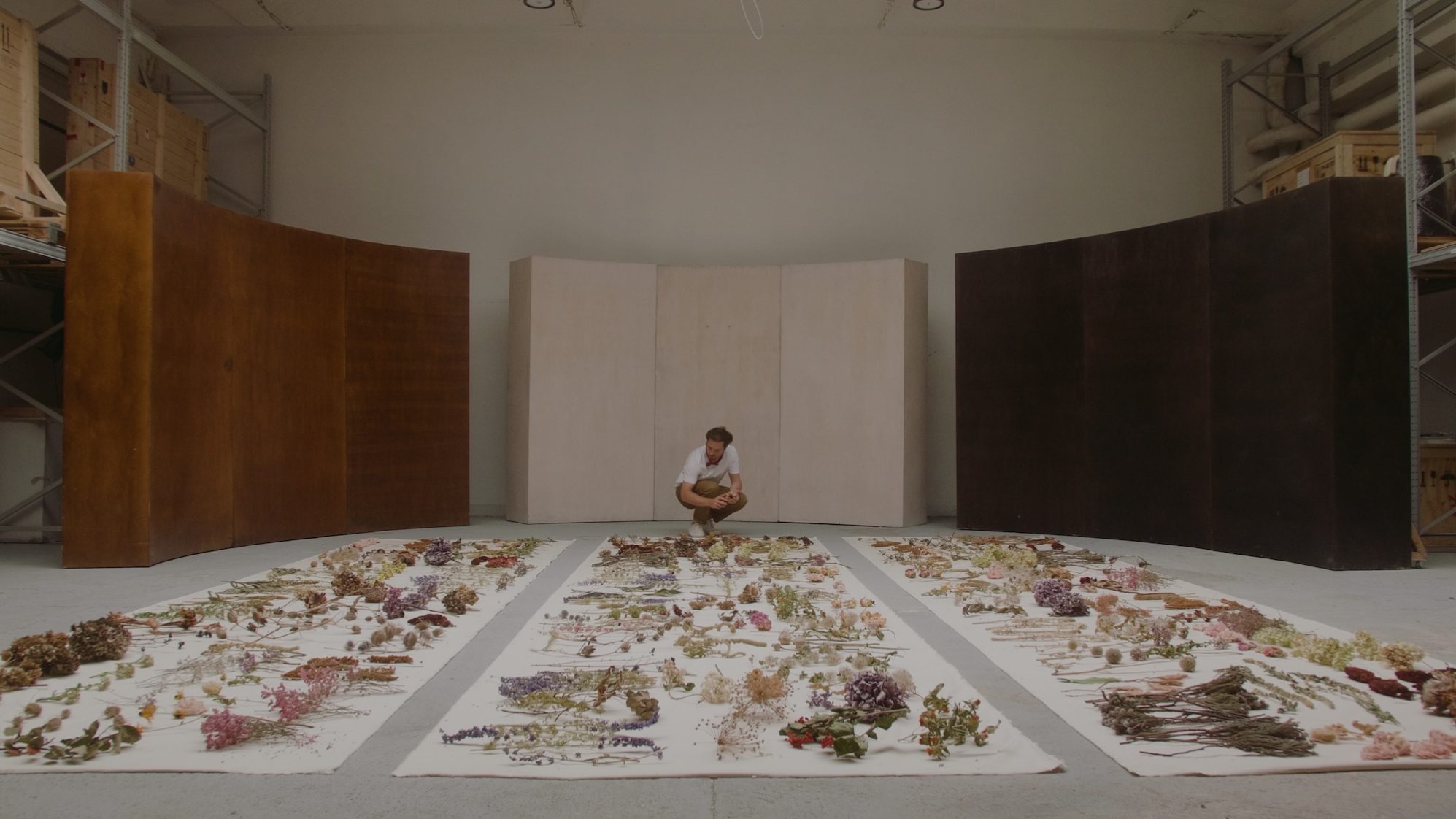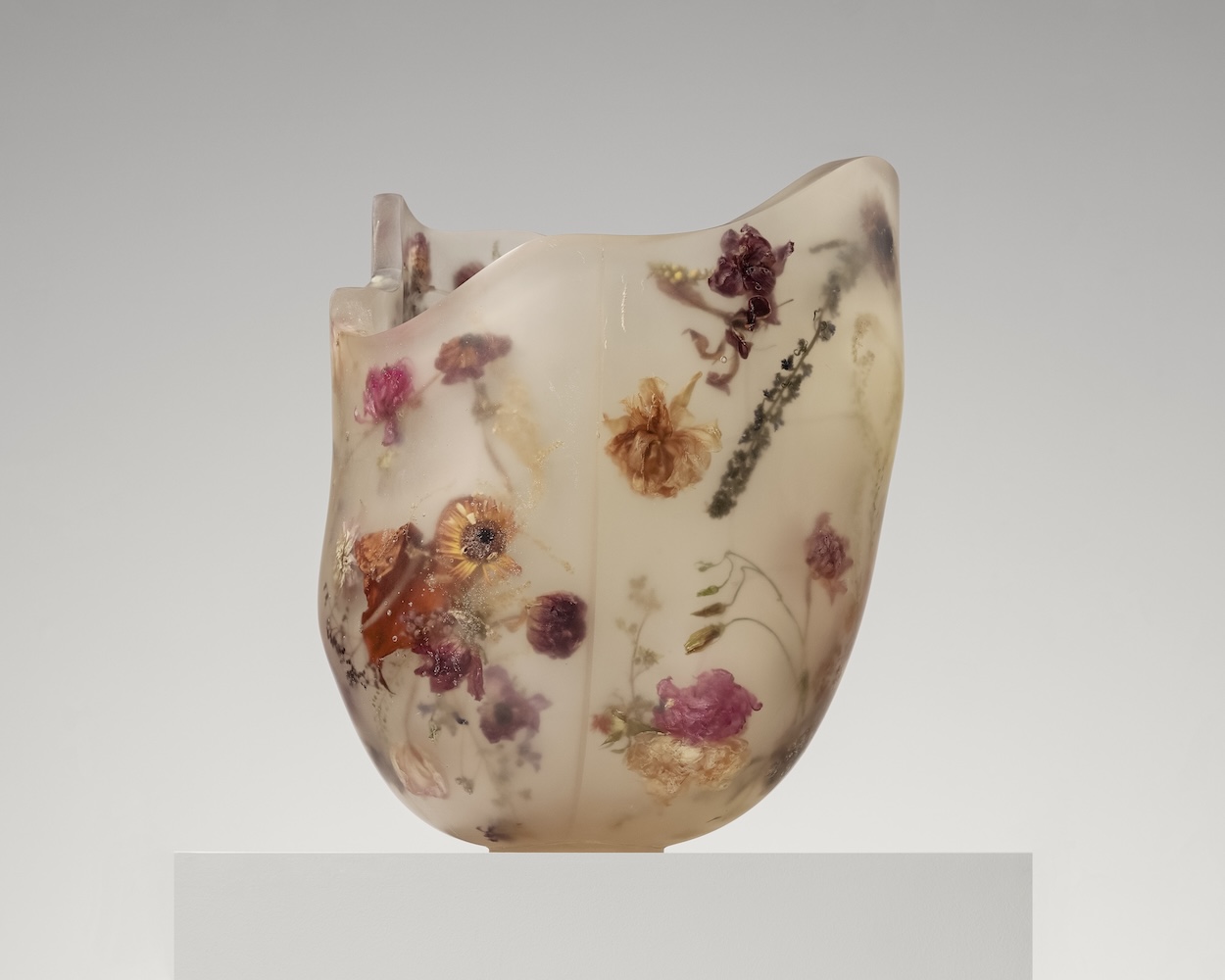Marcin Rusak grew up surrounded by the ghosts of abandoned greenhouses. His family’s century-old flower growing business abruptly shuttered when he was young, but the unsettling visuals of rusted metal, zinc planters, broken glass, and orphaned pumps in his backyard never quite left his imagination. In the years since, the Warsaw-born designer has dedicated his flourishing practice to slowing down the process of decay by capturing flowers in resin to create breathtaking furniture and objects that, in essence, freeze specific snapshots of time that reveal the immaculate yet fleeting beauty of florals. “If something is perishable or ephemeral,” he told Surface in 2017, “it creates this urge in you to preserve it and keep it.”
Seven years later and Rusak continues to reframe his practice as a conduit for his own lived history. The fruits of his latest experiments are now on view at “Vas Forum: Resina Botanica,” a solo exhibition at Carpenters Workshop Gallery in New York, where a makeshift herbarium of ghostly vessels ascribes near-eternal life to weeds and other discarded flowers past their prime. Each one-of-a-kind vessel’s cloudy appearance—part polished, part matte—takes on a special depth thanks to the flower-infused bioresin he developed in-studio over the course of several years. Their shapes mimic the stone slabs found along the placid shores of Poland’s pristine Solina River; air bubbles trapped within evoke morning dewdrops.
Rusak completes the entire process by hand, from collecting and organizing the flowers to concocting the amber-like material they’re entombed within. Because of his childhood memories with flowers and his involvement in every step of the creation process, he forges an intimate connection with each piece. “Vessels tell stories—my vases tell the stories of my memories,” Rusak says, recounting sun-soaked summers in rural Poland and cherished time spent with his grandmother. Stories of his childhood and identity are invested in each, but so are poetic ruminations on the flower industry, what flowers represent today, and modern-day consumption habits, so there’s space for anyone to derive their own meaning.
Still, the melting pot of memories sometimes makes it difficult for Rusak to part with his vessels. Recently, he has struck up arrangements with buyers allowing him to revisit his pieces and witness their evolution. Where he once avoided getting personal and instead let his work do the talking, years of success, introspection, and interest in his approach have given him newfound confidence. “I’m finally in a place where I can look back at my achievements and contextualize them,” he tells Surface. “At the same time, I’m ready to reveal my emotions and sensitivity. There’s a sense of freedom that allows me to experiment and explore creative possibilities.” More revelations are sure to emerge come October, when Rusak will present his first retrospective at Carpenters Workshop Gallery in London.
“Vas Forum: Resina Botanica” will be on view at Carpenters Workshop Gallery (693 Fifth Avenue, New York) until June 28.



